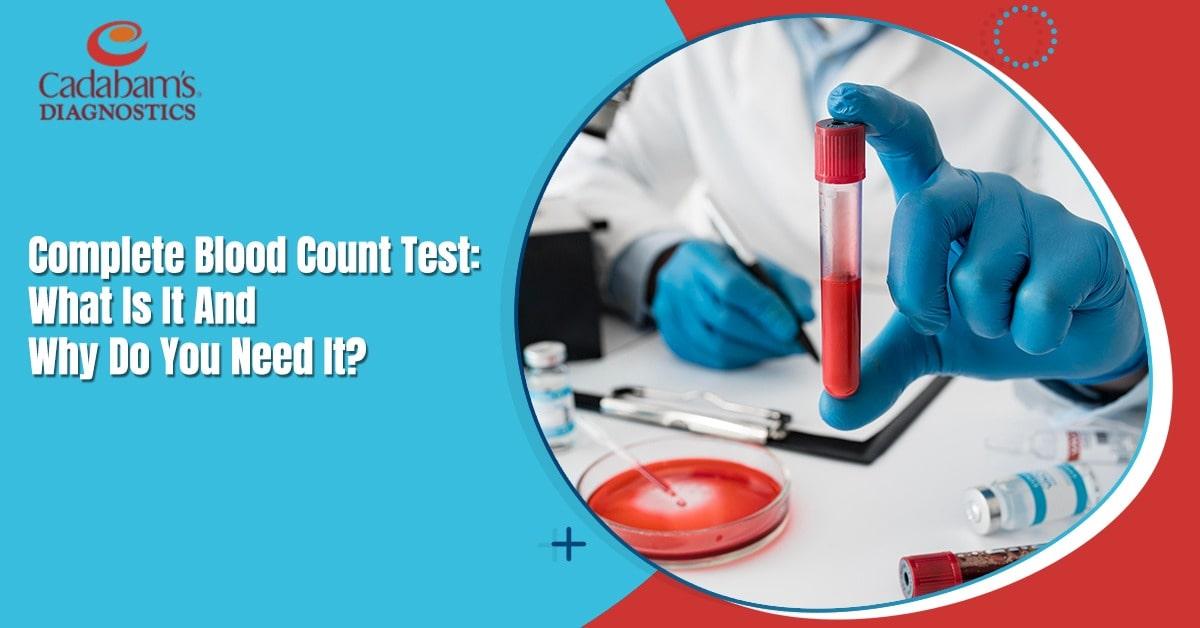
CBC Test Explained: What It Measures and Why It's Essential
Verified by: Dr. Shreyas Cadabam
A Complete Blood Count, or CBC, test is a thorough blood test that reveals a patient’s general health. It can also identify potential issues with the person, such as leukemia or anemia. Doctors typically advise completing this test as part of annual health maintenance plans or routine checkup schedules. This test may also be required for patients displaying symptoms including weakness, exhaustion, or fever. Here, we will discuss all the necessary details you need to know before taking this test. So, keep reading.
When Is A CBC Performed?
If you experience signs like these, a CBC may be necessary:
- Bruising or bleeding
- Tiredness, dizziness, or weakness
- Fever, nausea, and vomiting
- Inflammation like swelling and irritation
- Joint discomfort
- Heart rate or blood pressure issues
What Does A CBC Measure?
The CBC test can reveal a lot about your overall health to your doctor. It measures:
White blood cells (WBCs) – WBCs help your body’s immune system. Excessive WBCs can indicate an infection, an allergic reaction, inflammation, or other diseases. You can be more susceptible to illness if it’s low. A low count could also be brought on by a medicine, a virus, or a bone marrow condition.
Red blood cells (RBC) – Your body receives oxygen through RBC. They aid in transporting carbon dioxide as well. A low RBC count describes that you may have anemia or another ailment.
Hemoglobin (Hb or Hgb) – This is the blood protein that carries oxygen. Aside from blood glucose or HbA1C, this test measures Hb levels.
Hematocrit (Hct) – This test determines the percentage of your blood comprising RBC. Low percentage values may indicate an iron shortage, while high percentages could indicate dehydration or another condition.
Mean Corpuscular Volume (MCV) – MCV is a scale that assesses the size of your RBCs. These cells’ sizes can give doctors a wealth of knowledge regarding a patient’s health.
Platelets – When a patient is injured, platelets begin to work. Your blood’s unique component creates blood clots to block blood flow.
Why Should You Take CBC Test?
Doctors may recommend this test for a variety of reasons, but it is most commonly used for the following.
Creating a comprehensive report – Doctors advise taking this test as part of a comprehensive medical examination. The test results assist doctors in determining the overall health of their patients.
Diagnosing medical conditions – If you have a disease, your doctor may advise getting a CBC, particularly if it’s difficult to diagnose from the outside.
Measuring treatment effects – Occasionally, it is impossible to tell whether a patient is benefiting from the treatment from the outside. In this scenario, your doctor might ask you to have a CBC Test.
Assessing patient condition – Your doctor may advise getting a CBC test to check your blood cell count if you have a specific medical condition that affects your RBCs. It will also assist medical professionals in choosing the best course of action.
Get Your Test Done With Cadabam's Diagnostics
Our CBC test package comes with ESR and includes Haemoglobin, Total WBC count, Differential count, RBC count, PCV, Platelet count, MCV, MCH, MCHC, and Red cell distribution width (RDW). Get in touch with us to get a more detailed view of the test.
Find the Best Pathology Lab in Bangalore for all types of facilities.